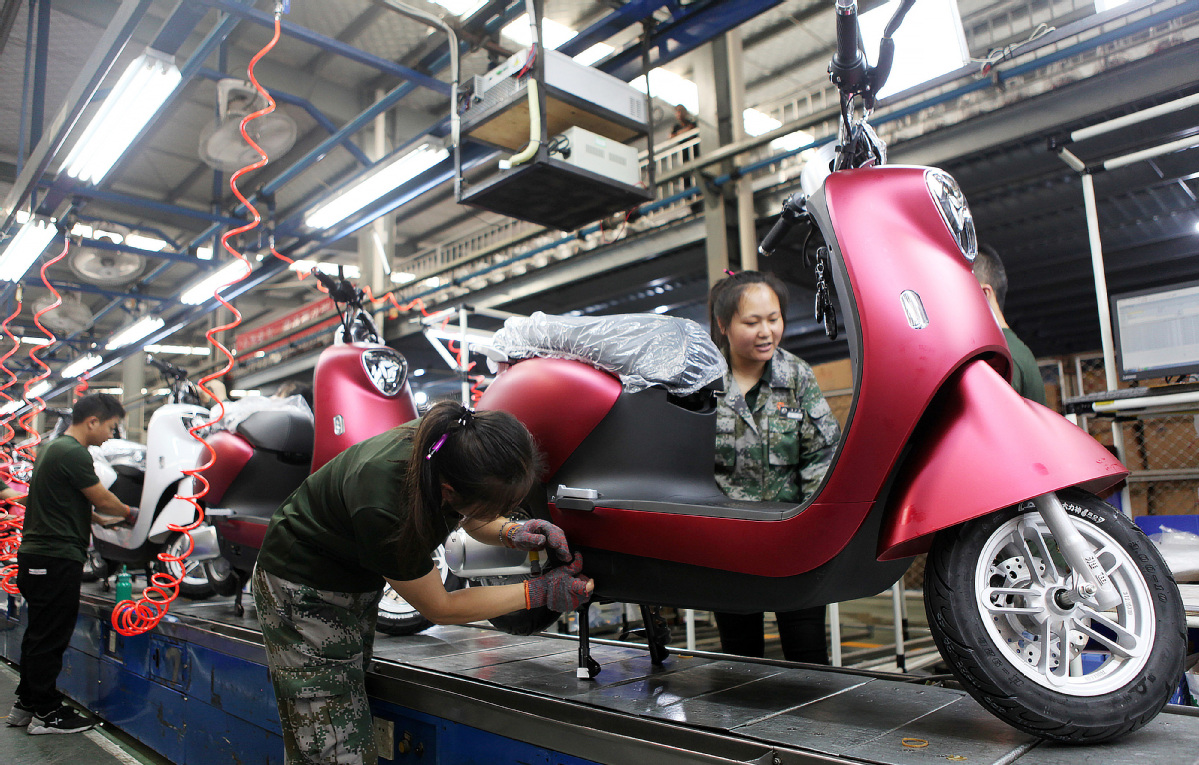E-scooters top choice among more urbanites


Sales hit 105 billion yuan in 2020 on 30 million units, a market record
It is not the half-million yuan ($77,332) price tag that keeps Beijing resident Qiao Ziyi from buying her dream car. Being in a license plate lottery pool for over six years, she is still competing with another 3.8 million people for a chance.
But while awaiting results, reality has come home to roost for Qiao and her family.
"My parents have to send my daughter to school every day and my husband and I have to get to the subway station that is around 3 kilometers away from our home," she said.
"Three to 5 kilometers is an awkward distance for us. It is a little bit of a long walk but it is not cost-effective to call a taxi, especially during bad weather conditions," the 41-year-old product manager said.
It was not until recently that she found an ideal way of solving the problem by buying an electric scooter, which allows her to move about more freely.
In China, a rising number of commuters are investing in their long-term daily transportation demand by buying e-scooters, making this massive market further skyrocket to new highs.
According to the China Bicycle Association, e-scooter sales hit 104.6 billion yuan last year. The country's annual sales of e-scooters exceeded 30 million units last year and the total ownership of such scooters was close to 300 million by last year's end.
Nevertheless, China has become the world's largest producer and exporter of e-scooters and is responsible for more than 90 percent of the production and sales of the e-bikes.
"Two-wheeled electric vehicles, which are usually priced about 3,000 yuan on average, are also affordable for me," said Tan Xin, a 24-year-old university student from Beijing. "Interestingly, when there are traffic jams during morning peaks, the small e-scooters make me feel it's all worthwhile."




































